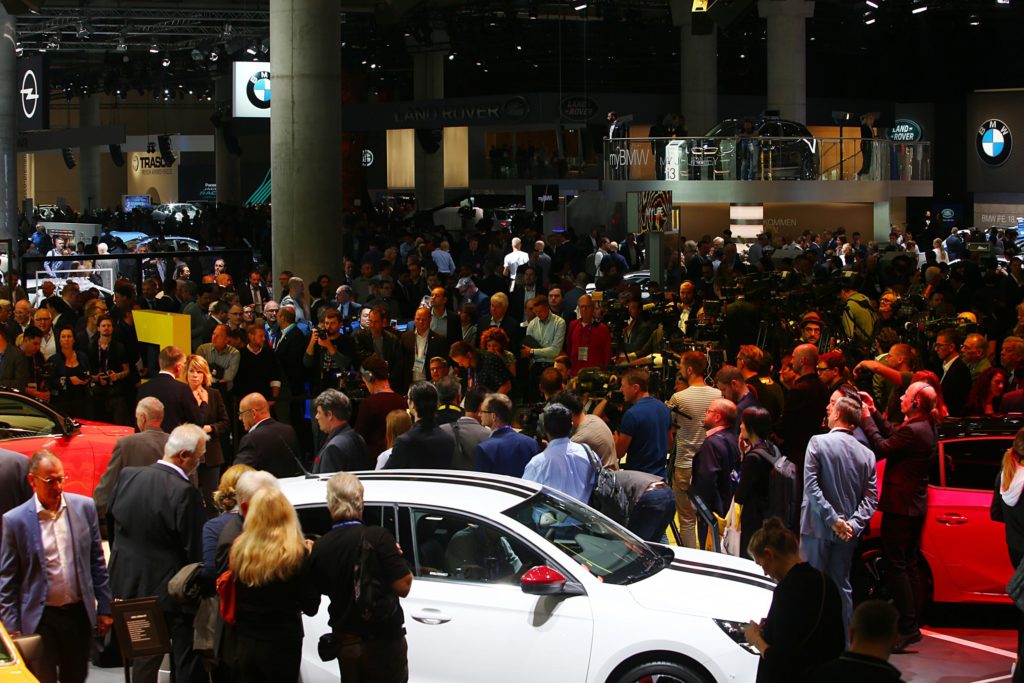Will there be a physical motor show in 2021?
01 February 2021

1 February 2021
The possibility of physical automotive shows in 2021 is still uncertain, even with vaccination programmes underway around the world to fight the COVID-19 pandemic.
Although countries worldwide are administering vaccines, it will take some time to inoculate a majority of their populations, dependent on supply. This adds uncertainty to event planning, as it is unknown what restrictions will be in place during the second part of this year. Until June, any events will likely be online-only, as infection rates remain too high in many markets to allow for mass gatherings.
With restrictions on travel, mass gatherings and uncertainty around what regulations will be in place, it is almost impossible to put full itineraries in place. Yet 2021 is set to see several big shows for the industry, two of which are based in Germany, which is currently under lockdown.
Both the IAA in Munich and Automechanika Frankfurt are to take place in September. The IAA, which is set to focus on the expanded theme of mobility with a new format and new venue for this year, is set to become a ′hybrid’ event, encompassing both physical and digital elements, according to Automotive News Europe.
The report states that virtual events will help to increase the show’s reach and make it more attractive for exhibitors and visitors. Carmakers will have the opportunity to send marketing messages to their target groups on various digital channels using different communication methods. The IAA had not responded to Autovista Group’s request for comment at time of publication.
It is reported that while Germany’s domestic brands, such as BMW, Volkswagen Group and Daimler have signed up to be present, only a handful of foreign carmakers are committed, including Ford, Hyundai and various Chinese brands. It is interesting to note that both Ford and Hyundai have shunned motor shows in recent years.
Other large carmakers are waiting to see how the pandemic plays out. This is likely why the VDA is looking at a virtual element to this year’s event, allowing them to take part safely and without the financial risk associated with a last-minute cancellation.
Clarifying cancellations
Organisers have also sought to clarify what any cancellation would mean in terms of financial penalty to exhibitors. Last month, a post on the IAA website stated that the VDA had ′revised the current cancellation regulations of its Exhibition Conditions for IAA Mobility 2021.’
Should the VDA cancel the event, as a result of force majeure or unforeseeable circumstances, the organisation will ′bear almost the entire risk and shall retain only 10% of the stand rent, even if the decision to cancel occurs during the event. In addition, exhibitors who are not permitted to travel to the show owing to state-imposed bans in Germany or another country, and whose stand operation, therefore, becomes impossible, ′shall also receive a generous reimbursement of their stand rent.’
This statement has likely been made following the uncertainties surrounding the 2020 Geneva International Motor Show (GIMS), which was called off days before it was due to take place. This was seen as force majeure, with the Swiss government installing restrictions on mass gatherings, and as such, organisers initially stated they would be offering no refunds. However, they later agreed to refund as many exhibitors as possible, with a sale of the event to new organisers to help facilitate this.
′A majority of GIMS exhibitors who took part in a survey stated that they would probably not participate in a 2021 edition and that they would prefer to have a GIMS in 2022,’ the GIMS organising foundation said at the time of the sale.
Write off?
Instead of a physical event last year, GIMS moved quickly to become an online-only event, with keynotes and press conferences, as well as the annual Car of the Year awards, hosted on its website. However, it was a very basic affair due to the timing of the cancellation.
GIMS set a precedent for online motoring events. This year’s CES was virtual with online exhibitor booths. The virtual event allowed for hundreds of companies to present their products and new developments to a global audience, while ensuring no one was put at risk. This did feel very different to previous shows however, without the physical ability to explore and discover new companies and technologies. The question is, therefore, if in the first months of 2021 no physical events go ahead, , should the whole year be written off to remove uncertainty and allow organisers and exhibitors to begin thinking about 2022 instead?
The North American International Auto Show (NAIAS) organisers have chosen another option, cancelling their 2021 event but arranging a new show, Motor Bella, which will act as a ′bridge to the future’, allowing them to test a new concept while ensuring COVID-19 compliance is kept in place.
The Motor Bella event will run from 21-26 September in Michigan, at the M1 Concourse, an 87-acre outdoor location.
′The pandemic has caused changes in our society and world in ways not previously imagined, and we all should be looking for new and highly creative ways of doing business,’ said executive director Rod Alberts. ′This new event captures that creative spirit. It will provide new mobility experiences and increasingly innovative approaches to tapping into the industry and its products.’
Whatever happens with the vaccination programmes around the world, it is clear that event organisers are having to prepare for multiple probabilities when it comes to motoring events.